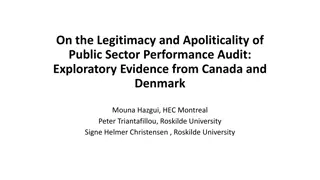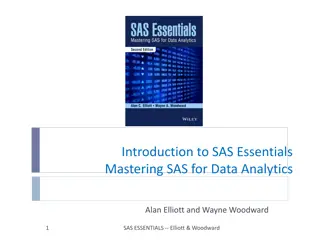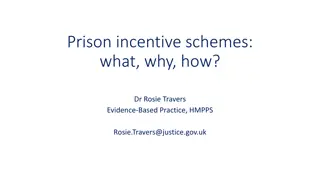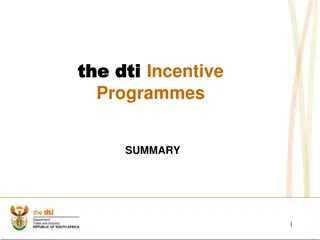Addressing the Human Factor in Data Access: Incentive Compatibility, Legitimacy, and Cost-Effectiveness
Allowing confidential data for research is advocated in this study, emphasizing the risks humans pose, the effectiveness of legitimizing security measures, and the shift towards user engagement and shared responsibilities for better security and cost efficiency in data access.
Download Presentation

Please find below an Image/Link to download the presentation.
The content on the website is provided AS IS for your information and personal use only. It may not be sold, licensed, or shared on other websites without obtaining consent from the author. Download presentation by click this link. If you encounter any issues during the download, it is possible that the publisher has removed the file from their server.
E N D
Presentation Transcript
Addressing the human factor in data access Incentive compatibility, legitimacy and cost-effectiveness in public data resources Felix Ritchie Bristol Business School, University of the West of England, Bristol Richard Welpton UK Data Service, University of Essex
Summary allowing confidential data to be used for research is good humans are a huge security risk policing humans is popular and easy legitimising security is more effective Felix Ritchie and Richard Welpton Addressing the human factor Page 2
Example: access to government data for research High re-use value Access usually granted under statute Data holders benefit little from release Theoretical environment based on fear and worst-case scenarios Felix Ritchie and Richard Welpton Addressing the human factor Page 3
The default option: policing tell people what to do impose penalties for getting it wrong simple to understand clear who is at fault creates us and them culture Felix Ritchie and Richard Welpton Addressing the human factor Page 4
The problem 50 years of data access no evidence of intruders plenty of evidence of mistakes (by users and data holders) users doing the wrong thing to make life easier If you don t trust users why are you giving them your data? Felix Ritchie and Richard Welpton Addressing the human factor Page 5
New approach: establishing legitimacy Actively develop user engagement we re all in this together shared goals shared responsibilities self-policing (community) lower overall costs and better security need initial investment in training risks are explicit and shared Felix Ritchie and Richard Welpton Addressing the human factor Page 6
Investing in people Need to actively change attitudes data holders as well as users Felix Ritchie and Richard Welpton Addressing the human factor Page 7
Evidence from data enclaves High legitimacy enclaves show: lower costs higher output better security positive feedback from researchers plenty of examples of self-policing Felix Ritchie and Richard Welpton Addressing the human factor Page 8
A risk-free solution? Obviously not but a grown-up risk assessment based on evidence analysis of researcher incentives Felix Ritchie and Richard Welpton Addressing the human factor Page 9
The Five Safes model Data Projects People? Outputs Settings Felix Ritchie and Richard Welpton Addressing the human factor Page 10

























